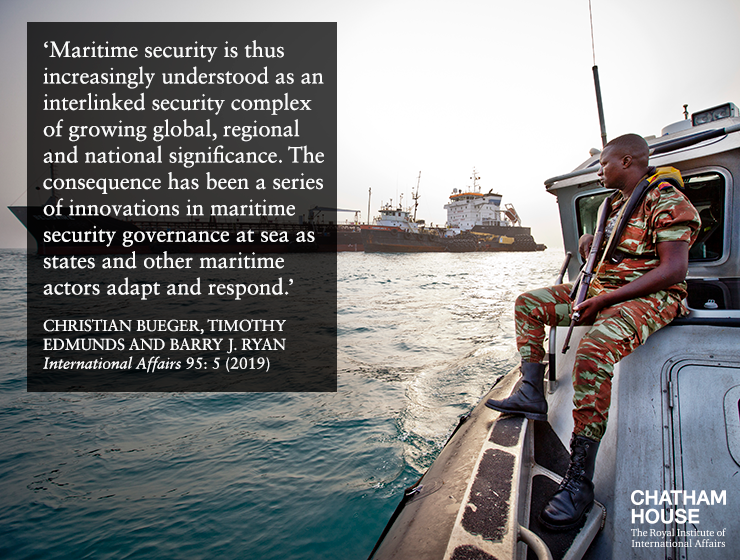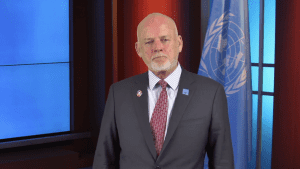Safeseas are pleased to announce that co-directors Christian Bueger and Timothy Edmunds, alongside Barry J. Ryan, have edited a special volume of International Affairs centred around maritime security.

The special issues builds upon on their previous article ‘Beyond seablindness: a new agenda for maritime security studies’ that argued that developments in the maritime arena have flown beneath the radar of much mainstream international relations and security studies scholarship, and that a new agenda for maritime security studies was required. In the introduction of the special issue, ‘Maritime security: the uncharted politics of the global sea’, they reiterate their call for more scholarly attention to be paid to the maritime environment in international relations and security studies. They further argue that the contemporary maritime security agenda should be understood as an interlinked set of challenges of growing global, regional and national significance, and comprising issues of national, environmental, economic and human security. The five contributions in the special issue set out to advance this understanding, with two having a more traditional perspective, while three analyse non-traditional areas.

 The Special Envoy for the Oceans of the United Nations Secretary-General, H.E. Mr. Peter Thomson, formally opened the
The Special Envoy for the Oceans of the United Nations Secretary-General, H.E. Mr. Peter Thomson, formally opened the